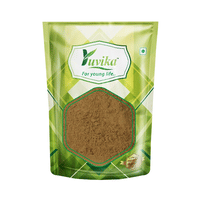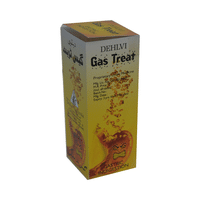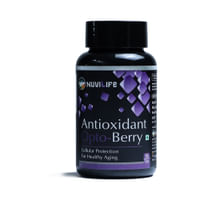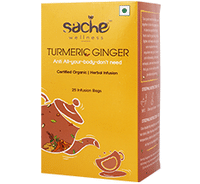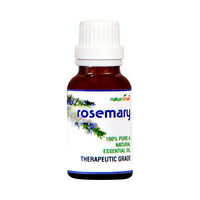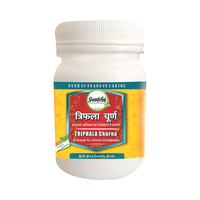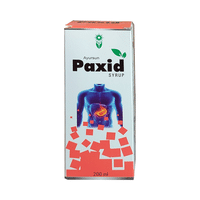Guapha Ayurveda Usherasava
(450 ml Syrup in bottle)
Rs. 112
Rs. 131.25
15% off
Rs. 112
Rs. 131.25
15% off
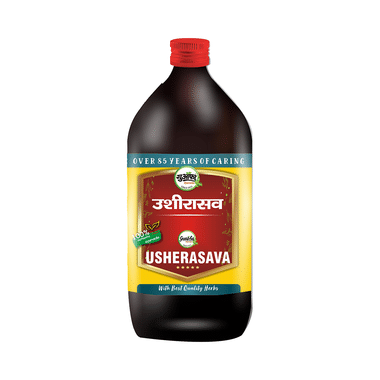
Product Details
Guapha Ayurveda Usherasava
Guapha Ayurveda Usherasava is an ayurvedic haemostatic and mild diuretic medicine. It supports blood circulation, diuresis, and the health of blood vessels. Furthermore, it reduces burning sensation, which may occur during urination. Basic Ayurveda Ushirasava is used traditionally in Ayurveda for conditions related to haematuria, hemorrhages, and metrorrhagia. In addition to these, it is also used traditionally in skin diseases, worm infestation, blood disorders, spermatorrhoea, uremia, and atrophy of different organs associated with aggravation of Pitta Dosha. This medicine supports blood purification and is used for excessive heat inside body. As this medicine is cold in potency it may be indicated during pregnancy in case of risk of premature delivery or miscarriage.
Key Ingredients:
Ushira (Vetiveria zizanioides),Netrabala (Pavonia odorata),Kamal ki Jad (Nelumbo nucifera),Gambhari (Gmelina arborea),Neelkamal (Nymphaea stellata),Priyangu (Callicarpa macrophylla)
Key Benefits:
Directions For Use:
Safety Information:
Guapha Ayurveda Usherasava is an ayurvedic haemostatic and mild diuretic medicine. It supports blood circulation, diuresis, and the health of blood vessels. Furthermore, it reduces burning sensation, which may occur during urination. Basic Ayurveda Ushirasava is used traditionally in Ayurveda for conditions related to haematuria, hemorrhages, and metrorrhagia. In addition to these, it is also used traditionally in skin diseases, worm infestation, blood disorders, spermatorrhoea, uremia, and atrophy of different organs associated with aggravation of Pitta Dosha. This medicine supports blood purification and is used for excessive heat inside body. As this medicine is cold in potency it may be indicated during pregnancy in case of risk of premature delivery or miscarriage.
Key Ingredients:
Ushira (Vetiveria zizanioides),Netrabala (Pavonia odorata),Kamal ki Jad (Nelumbo nucifera),Gambhari (Gmelina arborea),Neelkamal (Nymphaea stellata),Priyangu (Callicarpa macrophylla)
Key Benefits:
- Traditionally used in Raktapitta (bleeding from nose, ear, eyes and urinary tract)
- Provides support in the case of Pandu rog (Anaemia) and Prameha rog
- Helps to relieve skin disease and worm related disease
- Assist in the treatment of intestinal worms
- Facilitates comfort in heavy menstrual bleeding
- Used traditionally in Piles and stomachache
- Helpful in female related diseases
Directions For Use:
- As directed by the physician.
Safety Information:
- Read the label carefully before use
- Store in a cool dry place away from direct sunlight
- Keep out of reach of the children
- Use under medical supervision
- Do not exceed the recommended dose













